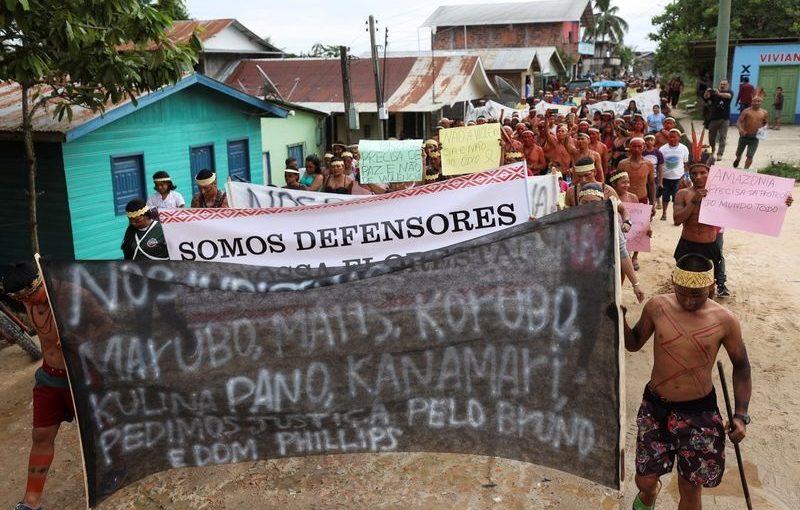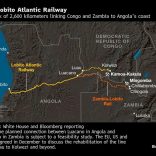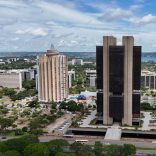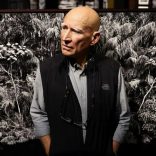US remains in talks on $500 million for Angola’s rail corridor
Brazil indigenous defender, sidelined under Bolsonaro, gave life for ‘abandoned’ tribes

Members of local indigenous group Univaja attend a protest after the British journalist Dom Phillips and indigenous expert Bruno Pereira went missing while reporting in a remote and lawless part of the Amazon rainforest, in Atalaia do Norte, Amazonas state, Brazil, June 13, 2022. Picture taken June 13, 2022. [Photo: Reuters /Bruno Kelly]
Six tribes from Brazil’s remote Javari Valley packed into an assembly hall on June 11 to lament the disappearance of Bruno Pereira, an advisor to their collective, and Dom Phillips, a British journalist reporting on his work.
Native patrolmen organized by Pereira, formerly a senior official for indigenous affairs agency Funai, were still hunting for signs of the missing men on an Amazon tributary that runs through their reservation.
But the assembly had little doubt about their fate.
“Bruno died as our shield, protecting us and our territory,” said Manoel Chorimpa, a Marubo tribesman and organizer for the Union of Indigenous Peoples of the Javari Valley (UNIVAJA), addressing the hall crowded with pierced and painted faces, feathered headdresses and warriors clutching spears.
Three days later, a fisherman who had confronted the indigenous patrols confessed to killing Pereira and Phillips.
Shock at their fate has echoed across Brazil and around the world, highlighting the overhaul of indigenous agency Funai under President Jair Bolsonaro, along with a rising tide of violence and criminal incursions on native lands.
“Why didn’t the government take action before what happened to our brother Bruno and the journalist?” Chief Arabonah Kanamari demanded angrily at the Univaja assembly.
“Now it falls to us to police our own territory. Funai has practically abandoned us,” he said.
Bolsonaro’s office did not respond to a request for comment, but he has made clear his disdain for Funai and its mission. Criticizing constitutional protections for indigenous lands as a barrier to development, he came to office in 2019 vowing to “take a scythe to the neck” of the agency.
Public records reflect his approach, with Funai’s staff and budget being cut since he came to power. New management has centralized and slowed down approval for operations, making it harder to respond swiftly to reports of illegal logging, mining and poaching, according to Indigenistas Associados, a non-profit advocacy group made up of current and former agency staff.
Funai did not respond to questions about the new policies or the growing reports of attacks on indigenous reservations.
Violence against indigenous Brazilians and illegal incursions on their land roughly doubled in the first two years of Bolsonaro’s government from the two years prior, according to The Missionary Council for Indigenous Peoples (CIMI).
Murders of Brazil’s indigenous land defenders jumped to 10 in both 2019 and 2020, compared to just five in the two prior years combined, according to human rights group Global Witness.
“Since he took office, President Bolsonaro has really begun supporting and protecting anyone who invades the indigenous territory, be they loggers, fishermen or miners, who now feel they are protected by the state,” said Sydney Possuelo, Brazil’s leading expert on isolated tribes and a former Funai president.
Career cut short
Pereira began working for Funai in 2010 in the Javari Valley, an area larger than Austria that is home to the highest concentration of uncontacted indigenous tribes in the world.
Friends and indigenous colleagues said he fell in love with the region and its people over his eight-year tenure there.
Videos from 2013 show Pereira in faded facepaint walking barefoot through the jungle with members of a local tribe. Indigenous leader Kora Kanamari said Pereira took the sacred psychoactive brew ayahuasca in rituals with the Kanamari tribe.
In 2018, Pereira moved to Brasilia to become Funai’s head of operations serving isolated and recently contacted tribes, but his work soon ran afoul of the incoming Bolsonaro government.
In early 2019, Bolsonaro publicly scolded environmental law enforcers for destroying equipment seized from illegal miners and loggers.
In September that year, Pereira worked with federal police on an operation that destroyed 60 boats used by illegal miners in the Javari Valley and nearby areas.
Alexandre Saraiva, then head of federal police in Amazonas state, told Reuters that other Funai officials had resisted the operation until Pereira secured the support of federal prosecutors, who forced the agency’s hand.
Within three weeks, Funai removed Pereira from his senior role, stripping his authority and putting his career in doubt.
Funai did not comment on the operation or the reason for Pereira’s demotion.
“Bruno was sad,” said Beto Marubo, Univaja’s representative in Brasilia. “He felt he was persecuted by his own institution.”
At the time, Marubo said Univaja was struggling to get help in the Javari Valley from police and government agencies without proof of criminal activity.
He asked for help documenting the invasions from his friend Pereira, who took a leave of absence from Funai in 2020, and last year they established an “indigenous vigilance” operation to patrol the reservation.












Leave a Reply
Be the First to Comment!
You must be logged in to post a comment.
You must be logged in to post a comment.